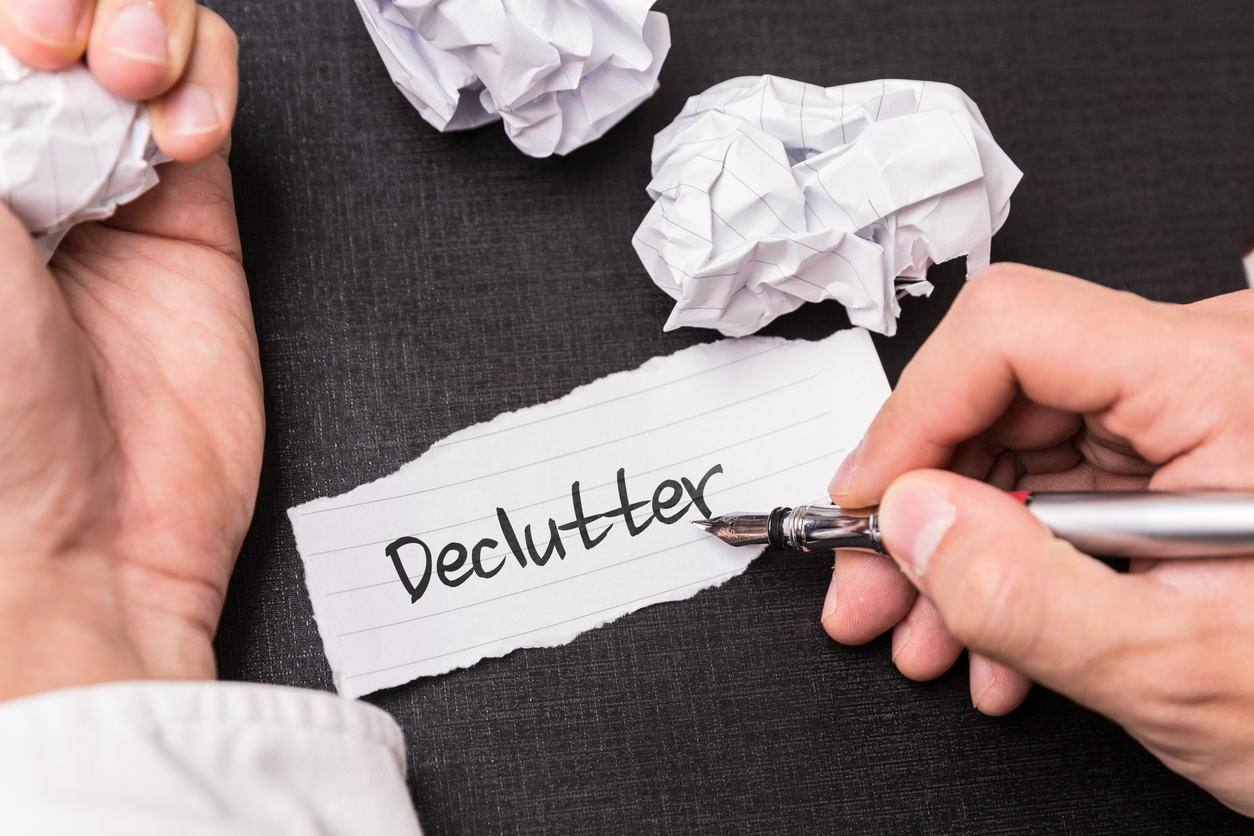


Scheduling helpers and services for these tasks rather than trying to do it all yourself allows you to be more present to your parent or loved one.ĭecision fatigue, holding items for family members, or transitioning to a smaller house may prompt seniors to consider paying for storage. You can also designate a family member or friend to drop off items. Use a trash removal service for anything that can’t be salvaged. Some donation centers offer pickup services. If that’s the case, schedule appraisals ahead of time so you don’t have to worry about it later. Or you may find some items you’d like to sell rather than donate. Step 5: Schedule appraisals if necessary. We offer compassionate expertise and support as we streamline the downsizing process for you. You could reach out to family members and friends, or hire a downsizing service like Caring Transitions.
SENIORS DECLUTTERING PROFESSIONAL
Whether you could use a few extra sets of hands or you need a professional team to help with a big move and sentimental items, it’s okay to ask for help. You’ll still work through small areas at a time while decluttering quite a bit in a month and you can adapt it to fit your time frame if you have less time than 30 days. It’s possibly the fastest way to declutter. If you need to liquidate in a pinch, try a 30-day decluttering challenge. Start with one room, one shelf, one corner whatever “small area” means to you. Next, work through small areas of the house at a time. Get rid of trash, recyclables, and anything dangerous, like old electronics, broken items, frayed rugs, and expired food and medicine. First, to build momentum, declutter easy things first. If your time is more limited, you may need to set weekly goals, such as two rooms per week. If you have plenty of time, your goal might be five to ten items a day. Avoid calling their items “junk” or even “clutter,” which can be an instant turnoff.īased on when you need to finish decluttering, set some realistic goals. Or you can offer to bring some snacks over and help them clean out their attic. For example, you could mention that you noticed they’ve donated some items and ask if they need help going through anything else. The best way to do this is to offer help without being pushy or judgmental.

Maybe they haven’t started decluttering yet and you feel they need to.ĭepending on the scenario, you may need to start the conversation. Maybe your parents have already started decluttering and you know they need help, but they haven’t asked. Here are 8 steps you can use to get started. Helping your parent or loved one declutter without stress…is it possible? We’re here to tell you that it is! Try this step-by-step process and some of our tips for keeping stress low and efficiency high when helping a senior declutter.įollowing a guide or a process can help you feel less overwhelmed about decluttering.


 0 kommentar(er)
0 kommentar(er)
